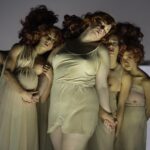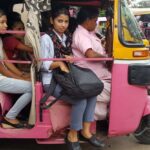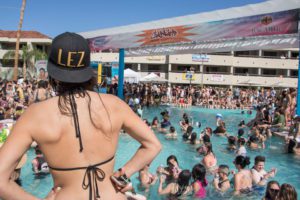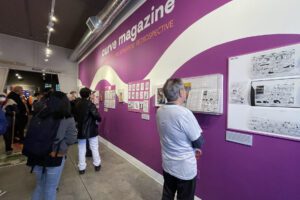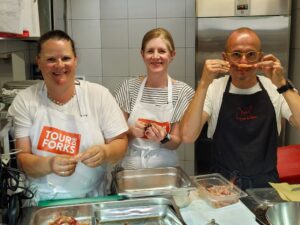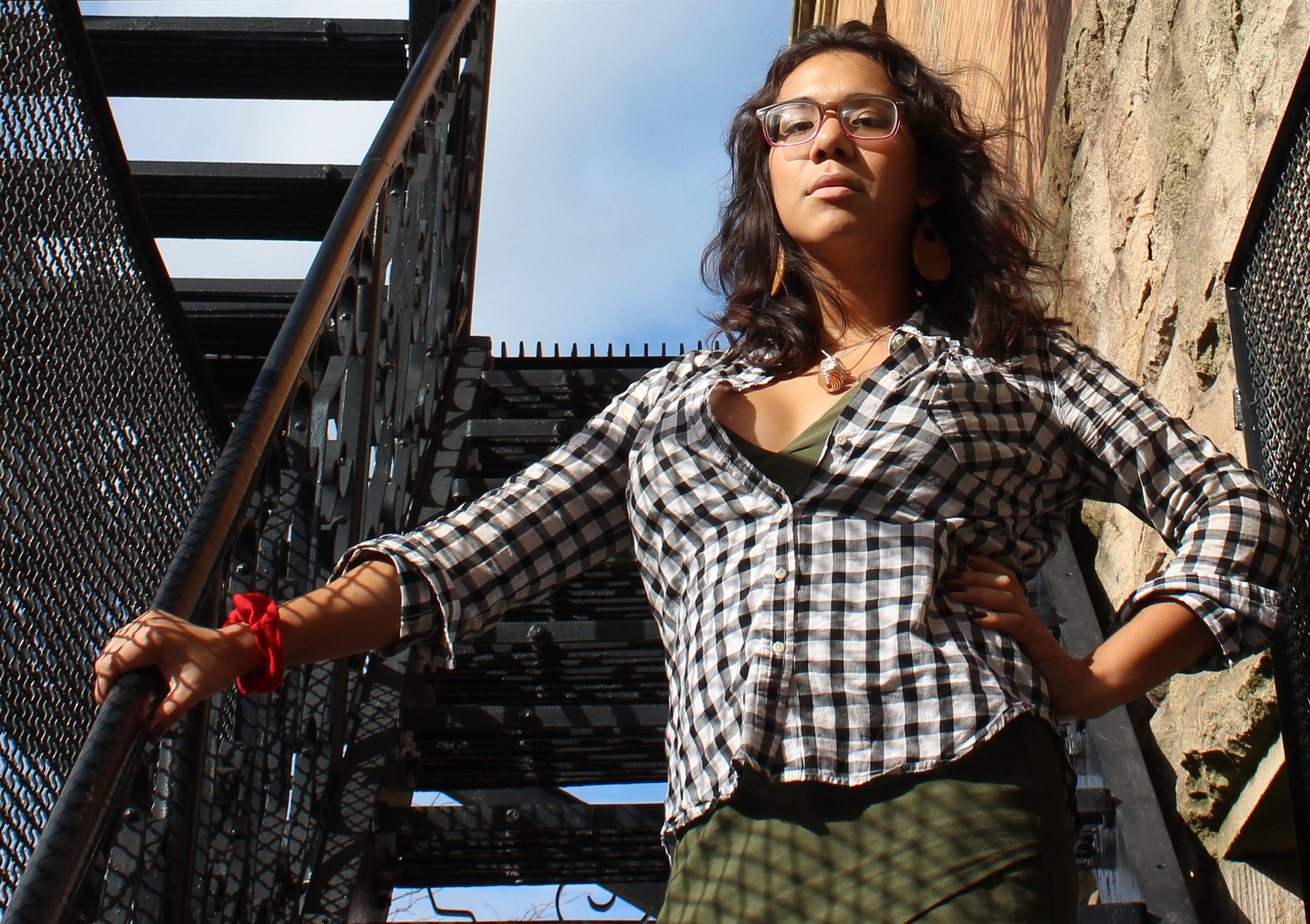
The National Queer Arts Festival’s 20th Year Expands Its Reach To Silicon Valley
by Heather Cassell
The National Queer Arts Festival is celebrating its 20th anniversary this year and is expanding to the South Bay.
“It’s very exciting. It’s actually the very first event ever to happen in the South Bay as part of the National Queer Arts Festival, so we are very excited and honored,” says Maya Scott-Chung, a consultant who has been working with De Anza College’s Office of Equity, Social Justice and Multicultural Education since last fall producing Queer and Now.
Pam Peniston, artistic director of the National Queer Arts Festival and the Queer Cultural Center, which produces the festival, says that the expansion of the event to the South Bay is important, as an increasing number of LGBTQ artists are locating to cities outside of San Francisco.
“In the last decade, more and more queer artists and audiences were moving to the East and South Bay,” writes Pam, 67, who described herself as a “big ole dyke,” in an email interview with the Bay Area Reporter.
Last year, the festival received a grant from the National Endowment for the Arts to support its goal to bring queer arts to Bay Area residents where they live, writes Pam. The festival was awarded a larger grant this year, despite President Donald Trump’s administration and attempts to defund the NEA, she added.
Some of the events around the Bay Area that the QCC is most excited about this year are the Topsy Turvy Queer Circus in San Francisco, the Singing Bois and Dena Underwood performing for Vintage Q in Oakland, and the “Femme Space” exhibit at De Anza College in Cupertino.
“This is so important for the Queer Cultural Center’s expansion of programs throughout the Bay Area,” says Pam. “It’s a chance to see what queer artists in other parts of the bay are creating; what concerns and topics are driving the work. But to also have a chance to be a part of it and initiate closer participation among artists in the South Bay, that’s amazing.”
The series of events for Pride Month will kick off Thursday (June 1) with “Femme Space,” an exhibit of portraits exploring femme identity by the late femme photographer Amanda Arkansassy Harris.
Additionally, there will be a screening of Luna Merbruja’s film “For All My Homegurls Who Are Semi/Non-Passable” and Dulce Garcia’s “With Conviction” from 10:30 a.m. to 12:30 p.m. in the California History Center classroom at De Anza College.
This is the second time “Femme Space” has been exhibited. The works first appeared at last year’s queer arts festival in Oakland.
“‘Femme Space’s’ vision portrays the true diversity of femmes from varying racial and ethnic groups, abilities, sizes, ages, and regions of the country and is inclusive of trans, cis, and gender fluid/nonconforming femmes,” writes Pam.
Participants in the project are looking forward to it.
“There’s so few places where I see us, queer femmes, taking up space,” writes Celeste Chan, a 30-something queer femme who is one of the participants in the exhibit, in an email interview with the B.A.R.
The San Francisco transplant from Seattle says she participated in the exhibit because, “I don’t see other queer Asian American femmes often enough.”
“I remember coming out as a teenager in Seattle, and thinking ‘but I can’t be gay, there’s no one who looks like me here,'” she writes about how lonely it made her feel.
Cinnamon Maxine, 29, who identifies as a Black queer femme, agreed.
“I just want to talk to people about gentrification. I want people to think about the ways they take up space and give space to other people,” says Cinnamon.
The power of “Femme Space” is why Maya selected it as an opening to the National Queer Arts Festival’s South Bay event.
“There are so many things that I love about the ‘Femme Space’ exhibit,” says Maya. “Each of the portraits people choose to reclaim those spaces and become visible and audible in spaces where we felt marginalized or otherwise left out of. It’s a really powerful way to transform trauma and build community and I was really drawn to it.”
The exhibit runs through June 30.
Maya, 51, who identifies as a queer femme mama artivist and has been working on producing the Queer and Now series of events with Veronica Neal, the director of the Office of Equity, Social Justice and Multicultural Education at De Anza College.
An LGBTQIA++ Ancestor Altar will be set up in the “Femme Space” exhibit to honor friends and loved ones who’ve died. Attendees are invited to bring images and notes to place on the altar.
The series of events through June will also feature a screening of director Patty Berne’s documentary, “Sins Invalid.” The documentary is about a performance project that celebrates artists with disabilities, centralizing artists of color and queer and gender-variant artists. The screening is June 8 from 1:30 to 3:20 p.m., at the college’s Multicultural Center, MCC 214.
A pop-up interactive exhibit of the “The Loving Quilt” will happen June 13 as a part of a one-day event celebrating the 50th anniversary of the Loving v. Virginia, the U.S. Supreme Court decision that overturned bans on interracial marriage. The quilt will be featured, along with screenings of award-winning filmmaker Debra A. Wilson’s “Butch Mystique” and “Jumping the Broom: The New Covenant” from 10:30 a.m. to 12:20 p.m., in the Intro to LGBT Studies class.
Queer and Now originally was a one-day conference launched by students about four years ago and was taken over by the De Anza College’s Office of Equity, Social Justice and Multicultural Education/Jean Miller Resource Room for Women, Gender, and Sexuality.
Veronica’s office is committed to making the successful one-day student-led conference a part of the “foundation” and a “normalizing component of the culture, not just the periphery,” on campus she says. Her goal is to institutionalize the event and queer issues by integrating LGBT subjects throughout the college campus throughout the year.
“There is a lot of conversation taking place at De Anza about, ‘How do we decolonize the curriculum and campus?’ Part of that is decolonizing gender and orientation and thinking about what does it mean to have a visible presence and not just to do that one time of the year,” says Veronica.
It’s been a success, with the community college’s administrators, faculty, and students participating and supporting a variety of events that already have been hosted throughout the campus, says Veronica and Maya.
Queer and Now is open to the public and is funded by the Equity State Initiative and DASB Heritage Months Program.
For more information, contact Maya Scott-Chung, or (510) 381-0876 or visit http://qcc2.org/nqaf2017.
Originally published by the Bay Area Reporter.
Book your next queer girl getaway with Girls That Roam Travel. Contact Heather Cassell at Girls That Roam Travel at 415-517-7239 or at .
To contract an original article, purchase reprints or become a media partner, contact .

